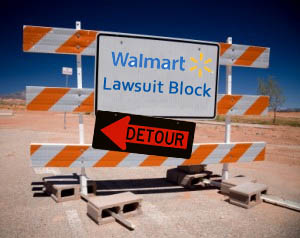 Top Class Action Lawsuits
Top Class Action Lawsuits
Bad Apple! The god of tech gadgets got slapped this week—with a potential defective products class action lawsuit (yes, another one), alleging its iPhone 4 has a defective power button, effectively preventing the operator from being able to use the phone. This power button failure allegedly occurs shortly after the phone’s one year warranty expires. And doesn’t that just figure…
The Apple iPhone 4 class action lawsuit, filed by plaintiff Debra Hilton, Debra Hilton v. Apple Inc., Case No. 13-cv-2167, U.S. District Court for the Northern District of California, claims “The failure of the power button that has plagued the iPhone 4 is more than an inconvenience… As a method by which the phone is toggled on and off, the failure of the button precludes general use of the phone and thereby effectively prevents iPhone 4 owners from being able to use the phone.” Yup.
According to the lawsuit, Hilton alleges the iPhone 4 power button defect is caused by the premature deterioration of a flex cable that connects the power button to the phone. When this cable deteriorates, the power button becomes harder and harder to depress, and eventually fails to work. Yup.
The iPhone 4 lawsuit contends that thousands of consumers who purchased the iPhone 4 have experienced this failure forcing them to throw away their phone or pay Apple $149.99 plus shipping for a replacement. Yikes! Better get on it boys.
Top Settlements
Two Better than One for Wells Fargo. Wells Fargo made headlines twice this week, two settlements to report—both biggies. The first was a judicial order to reinstate a $203 million judgment against the bank in settlement of an overdraft fees class action lawsuit.
In a nutshell, the judgment, based upon the court’s findings, as affirmed on appeal by the Ninth Circuit, states that Wells Fargo violated California’s unfair competition law by deceiving its customers that debit card purchases would be posted chronologically to their accounts when in fact Wells Fargo posted them in a high-to-low order for the sole purpose of generating overdraft fees.
The case was brought on behalf of California Wells Fargo customers who, from November 15, 2004 to June 30, 2008, incurred overdraft fees on debit card transactions as a result of the bank’s practice of sequencing transactions from highest to lowest.
The second settlement with Wells Fargo’s name on it involves a force-placed insurance class action lawsuit brought by homeowners in Florida. (Force-placed insurance, btw, is sometimes referred to as “lender placed insurance”.) The lawsuit alleged that the homeowners were overcharged for the insurance, and that Wells Fargo unfairly took commission on the insurance, which it assigned to the homeowners through QBE.
The class was certified in 2012, and more than 24,000 homeowners were notified. During the class period, from April 2006 to February 2013, the class members were charged $77 million for force-placed insurance, according to the settlement documents, the South Florida Business Journal reports.
But wouldn’t you know it, just two months before they were due to go to court, the parties reached a $19.5 million settlement.
The settlement will provide a refund of the amount charged for force-placed insurance to the members of the class. Borrowers who were charged and paid the premium will be refunded 25 percent in cash. Those who were charged the premium but didn’t pay will get a credit of 25 percent off their bill.
Bet those homeowners are breathing a huge sigh of relief this weekend.
Largest Generic Drug Safety Fine. Ever. We’d be completely remiss if we didn’t mention this one… Ranbaxy has pled guilty to federal drug safety violations and will pay $500 million in fines to resolve the claims. The generic drug manufacturer is alleged to have sold subpar drugs and made false statements to the Food and Drug Administration (FDA) about its manufacturing practices at two factories in India.
According to the Justice Department, the settlement is reportedly the largest in history involving a generic drug maker. Part of the settlement involves Ranbaxy pleading guilty to three felony counts of violating the federal drug safety law and four of making false statements to the FDA.
According to a report by the New York Times, Ranbaxy acknowledged it had failed to conduct proper safety and quality tests of several drugs manufactured at its Indian plants, known as Paonta Sahib and Dewas, including generic versions of many common medicines, such as the epilepsy drug gabapentin, and the antibiotic ciprofloxacin.
In the case of gabapentin, also known as Neurontin, Ranbaxy reportedly admitted that between June and August in 2007, it was aware that certain batches had tested positive for “unknown impurities” and had unreliable shelf lives. Nevertheless, the company didn’t report this to the FDA and announce a recall until October of that year. The recall ultimately involved more than 73 million pills.
Further, testing of certain batches of drugs to ensure their effectiveness was reportedly not done for weeks or months after the company had told the FDA the testing had been carried out.
Ranbaxy has set aside $500 million in anticipation of the penalties, which will break down as a $150 million in a criminal fine and forfeiture, and the remainder going to settle civil claims brought by the federal government and all 50 states. A former Ranbaxy executive who alerted the federal government to the problems will receive close to $49 million in compensation for his role as a whistleblower, the Times reports.
That’s a wrap. It’s cocktail hour—somewhere in the world—see you at the bar!

